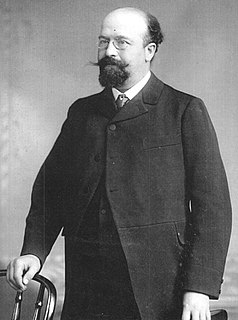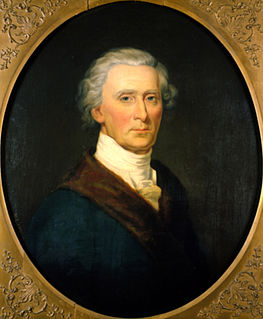A Quote by Tinie Tempah
I think it's imperative to have faith or religion, because it's good to have morals, to be kind to others.
Quote Topics
Related Quotes
I would not, under any circumstances, try to impose my personal faith and belief on the rest of the country. I don't think that's right. I don't think that's appropriate. But freedom of religion doesn't mean freedom from religion. And I think that anything we can do to promote the idea that people should express their faith is a good thing.
[F]or avoiding the extremes of despotism or anarchy . . . the only ground of hope must be on the morals of the people. I believe that religion is the only solid base of morals and that morals are the only possible support of free governments. [T]herefore education should teach the precepts of religion and the duties of man towards God.
Big religion was started with one goal in mind: to make money. And I'm not knocking anyone's faith, because I think there are a lot of good values to be found in any faith. But when any faith starts to get in the way of love, that's where you can tell that greed and fear have stepped in and that those things come from man.
In every other religion the indicative flows from the imperative. Which means, ‘because I do, therefore I am... because I do this, therefore I’m a child of God.’ But only in Christianity does the imperative flow from the indicative. ‘Because I am in Christ all these things, therefore I obey.’ Exactly the opposite.
Faith is not an art. Faith is not an achievement. Faith is not a good work of which some may boast while others can excuse themselves with a shrug of the shoulders for not being capable of it. It is a decisive insight of faith itself that all of us are incapable of faith in ourselves, whether we think of its preparation, beginning, continuation, or completion.
The word 'religion' is only a label. What lies behind that, the most important thing of all, is the word 'faith'. You either have faith, or you don't have faith, or you have degrees of faith - and if you have degrees of faith, then you become agnostic. You're kind of in-between, or you're on the fence.
Without morals a republic cannot subsist any length of time; they therefore who are decrying the Christian religion, whose morality is so sublime and pure (and) which insures to the good eternal happiness, are undermining the solid foundation of morals, the best security for the duration of free governments.
The incipient magician will confess his faith to a universal religion. He will find out that every religion has good points as well as bad ones. He will therefore keep the best of it for himself and ignore the weak points, which does not necessarily mean that he must profess a religion, but he shall express awe to each for of worship, for each religion has its proper principle of God, whether the point in question be Christianity, Buddhism, Islam or any other kind of religion.
I believe in having a more open mind and including others who don't share your faith and having dialogue with them. And just having a pure heart and being a good person can bring you closer to God. Because once you believe in one particular religion fully and not others, that requires you to start disliking people who don't share your views.



































